NAME: Netty B
TRACK: Do This For Fun
YEAR: 2020
FROM: Alabama, USA
NAME: Netty B
TRACK: Do This For Fun
YEAR: 2020
FROM: Alabama, USA
NAME: Naomi Achu
TRACK: No Limit (Freestyle)
YEAR: 2020
FROM: Cameroon
Born and raised in Gaborone, Botswana, Danielle Swagger started rapping in 2012. Now based in La Reunion Island, the artist told us about her experience in hip hop, her projects and the construction of her musical identity.
How and when were you introduced to hip hop?
I was introduced to hip hop through the likes of Snoop Dogg mentoring Bow Wow to Missy Elliott, and not only was I into hip hop but a massive collection of music, listening to songs and writing them down directly then after learning them, little did I know I was growing a skill in me.
How did you start rapping?
When I was about 17 years old, my older brother asked me to come to his studio and record a verse on his song That Mullah, after all I was always singing at the top of my lungs in the house. People reacted well to the song but I could hear myself more than they could and knew I had to enhance my skill further. Till this day, I am still juggling my sound, flow and voice in different directions trying to define my personality through music.
How would you define your music?
My music is realistic based on reality, its core of the body is hip hop sometimes assorted with other genres. It depends how I am feeling the production.
If someone doesn’t know your music and wants to discover it, which track would you advise them to listen to first and why?
I would tell them to listen to #ShebaGusheshe featuring JT SpecialBoy because it is the song we took to radio first, which introduced me as an artist to a broader market in Botswana and it did very well. It is a unique genre and a hybrid of Skhanda music generated by K.O from South Africa, mixed with a hint of sgubu/kwaito sensation.
Why did you decide to move to the Reunion Island?
I decided to relocate to Reunion Island because I knew music is part of the culture. Music here is usually performed live with the basic instruments we know and traditional instruments like the ngoni, djembe, kayamb…
The festivals here are amazing and the organizations such as Le Kerveguen, La Cité des Arts, Florilèges have some of the biggest stages. I figured I could grow myself as an artist and prepare myself for bigger worldwide stages, collaborate and exchange with different programs and musicians. It is a learning curve for me and I am not in a rush.
You collaborated with rapper Queen Favie. How did you two meet and decide to work together?
Queen Favie and I met through our managers, who put together a collaboration aimed at misogyny.
Are there many female rappers in Botswana? Is it easy for them to make themselves known and find an audience?
Botswana has very few female rappers who are exposed to the creative industry, in fact it is a male-dominated industry and this is a very sensitive topic for me to discuss.
Who are your female role models?
I aspire to be like Bonang Matheba, Viola Davis, Maya Angelou, Michelle Obama. Women of substance, responsibility and power. To fall, To Learn, To Get Up & Teach. Music-wise I respect Beyonce as the greatest performer and Rihanna as a rolling stone in the music business.
Do you consider yourself a feminist? If so, how would you define your own feminism?
I am a feminist because I believe women are the stand still of the world, without women the world cannot go forward.
What are your upcoming projects?
I don’t like to blow my bubble but l’d like my fans to look forward to the much aggressive side of me. All updates will be available on my page.
What do you think about Madame Rap? What should be changed or improved?
Madame Rap is a marvelous platform because it states its focus, it is broad and entertaining for those who want to hear more female rappers. Keep pushing, you’re doing a magnificent job.
Find Danielle Swagger on Facebook, Instagram and Twitter.
© lecerf
NAME: Princess Rethsa
TRACK: Grinding
YEAR: 2020
FROM: Brooklyn, New York, USA
NAME: Plaeikke
TRACK: GIFT
YEAR: 2020
FROM: Germany
NAME: Melinda
TRACK: 24 Bars
YEAR: 2020
FROM: Kosovo/USA
NAME: MC Konejah
TRACK: Creo en mi
YEAR: 2020
FROM: Chile
NAME: Larva
TRACK: Garabatos
YEAR: 2020
FROM: Argentina
NAME: VVS Panther
TRACK: Mia Wallace
YEAR: 2020
FROM: Lausanne, Switzerland
NAME: K Shiday
TRACK: Girls Just Wanna Have Fun
YEAR: 2020
FROM: San Antonio (Texas)/Atlanta (Georgia), USA
NAME: Circé The Witch
TRACK: Quoi de neuf ?
YEAR: 2020
FROM: France
NAME: Vintage Lee
TRACK: KADAKAKA
YEAR: 2020
FROM: Boston, USA
NAME: Brixx
TRACK: Man
YEAR: 2020
FROM: Birmingham, UK
NAME: Nicki Nicole
TRACK: Colocao
YEAR: 2020
FROM: Rosario, Argentina
Born in Berlin, Hawa grew up in France and Africa. Now based in NYC, the 19-year-old rapper told us about her evolution in hip hop and her new EP The One.
How and when were you introduced to hip hop culture?
I was introduced at a very young age. I would probably say around 3 years old. I can’t tell you when exactly, but especially since I grew up in a Black household, it is impossible for you not to encounter hip hop at one point. But I grew up listening to Motown, Africa, French, and house music mostly.
How did you start rapping?
There was a point in my life where I was just listening to rap and drill, and one day, I decided to start rapping. After that, I just practiced so I could get good.
Which artists did you listen to while growing up?
TLC, D’Angelo, Sade, John Mayer, Mase, T Pain, Tracy Chapman. Honestly, I could keep going on forever.
Did you receive any musical training?
Yes I received classical training from the New York Philharmonic.
You just released the EP The One. How would you present this project?
I can’t really answer that because this project is about love and there is no true way to present that.
Do you identify as queer? What does the term “queer” mean to you?
To be honest, I’m a lesbian woman who loves women. Queer doesn’t really mean anything because I don’t think my sexuality is what really defines me as a person. All it says about me is the kind of person I like to have sex with.
Hip hop is often pictured as sexist and homophobic. However many LGBTQIA artists express themselves through rap. How would you explain this contradiction?
Honestly, I think this one of the problems asking questions like this. Even if it’s not intentional to categorize, why does it mean being a gay artist means that you have to be labeled either LGTBQ or female? Why can’t an artist just be a rapper or singer? So I feel like once everyone stops making those categories then it’ll be easier for things to change.
Do you consider yourself a feminist?
I do. My ability to embrace my beauty, embrace my feminism, support other women, and being able to voice my sexuality freely, and to be free– that’s the way I would describe my feminism.
What are your upcoming projects?
I’m making a new album and new music in general so be on the lookout!
Find Hawa on Soundcloud, Twitter and Instagram.
NAME: L’As des As
TRACK: Freestyle #1
YEAR: 2020
FROM: Cannes, France
To celebrate the progressive end of lockdown, Swiss rapper KT Gorique releases her Biggest Female All Stars Cypher: 19 female rappers from 9 different countries gathered on a 7-minute-track produced by beatmaker Fana, with whom the MC collaborates regularly.
Trying to make good use of the pandemic lockdown, KT Gorique asked her Instagram followers to suggest several female rappers to take part in a cypher that would gather the largest number of femcees all across the globe. “The fact that we all gathered during lockdown enabled us to unite and remain connected“, the founder of the project explains. “It’s also a way to give strength to our audience and help them discover new female rappers. I never thought it would be that big! It was complicated in terms of logistics and for the mix because of the different equipments, but a real pleasure for me to have launched this project. A shared moment that feels good!“
KT Gorique (Martigny, Switzerland)
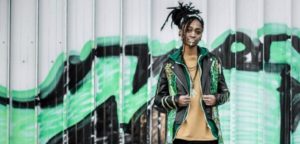
Illustre (Clermont-Ferrand, France)
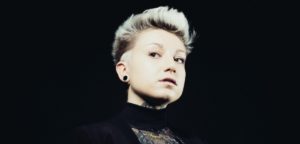
“I was very happy to be invited to take part in this emancipating movement. I am proud to notice the emulation that’s happening right now and the normalization of female figures in the media. The more representations we’ll have, the more identifications, and the spirit of the cypher was totally in line with our respective values. As if being a group brought something even stronger. A real beautiful artistic and human encounter.”
Flash Marley (Lomé, Togo)
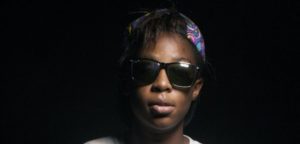
Starrlight (Helmond, Netherlands)
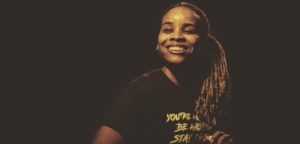
“The reason I agreed to take part in this project is because it’s an all female cypher! And I think there are not enough women on the scene. 75% of those that made it never share the crown with their fellow queens. I think that women need to collaborate more, instead of seeing each other as competition. Real queens fix each other’s crowns. That’s why I wanna give a huge shout out to all these women coming together on one track to spit these fire bars!“
Hemkah (Villiers-le-Bel, France)
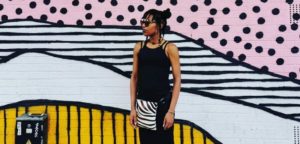
Miss C-Line (Basel, Switzerland)
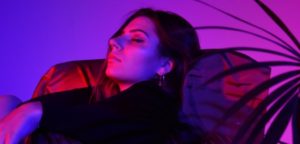
Lau Rinha (Marseille, France)
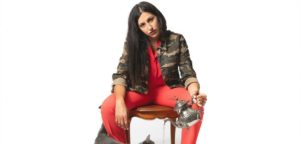
“I wanted to take part in this project because I found it was very unifying, during lockdown, to gather female rappers from different countries on one track. For me, the message is like: we are all locked at home, we rap, we stay strong, inspired, productive and put all that together to make a fucking track!! I wanted to represent France, the south, Marseille… Without talking about lockdown, I chose to talk about what reunites us, out passion and love for hip hop.“
Lillian Blanche (Charlotte, USA)
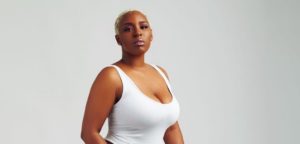
Nash (Abidjan, Ivory Coast)
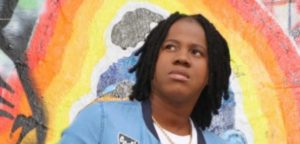
Ebène (Nouakchott, Mauritania)
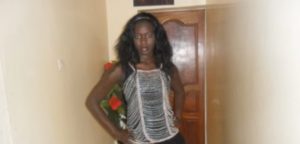
Ekloz (Montpellier, France)
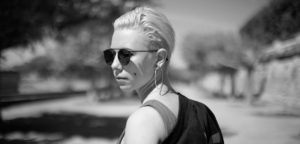
“KT is someone I highly respect for her work and commitment and when she invited me with other female rappers, I thought it was so cool! Sharing a track with different backgrounds and languages is not something you see every day so might as well make the most of it.”
Amalia (Marseille, France)
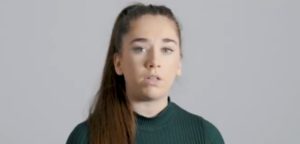
Sima Noon (Tel Aviv, Israel)
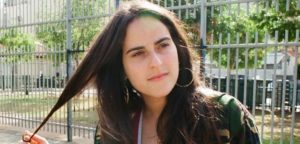
La Furia (San Sebastian, Spain)
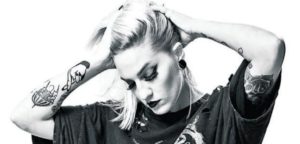
Evita Koné (Geneva, Switzerland)
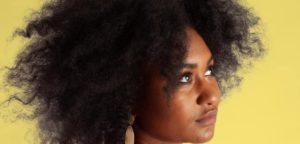
Bouki (Lyon, France)
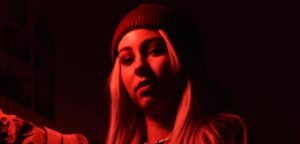
Lindsay (Martinique/Montpellier, France)
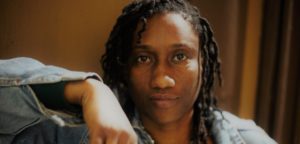
Tyriss (Geneva, Switzerland)
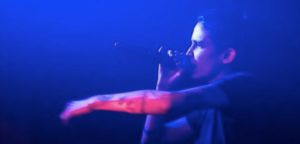
Pumpkin (Nantes, France)

Willing to involve her fan base further in the project, KT Gorique also launched a vote on Instagram to find three graphic designers ready to design a cover in 24 hours. The covers were put to the vote and her followers chose the work of M.D’Angelo, a Marseille-based female graphic designer from Lyon.
The result is a forceful track, which shows the diversity of rap and an all-female project, which gets things moving in a still largely male-dominated world.
NAME: Lil Bri
TRACK: Lovers & Friends Freestyle
YEAR: 2020
FROM: Houston, USA
NAME: Chanel West Coast
TRACK: No Plans
YEAR: 2020
FROM: Los Angeles,